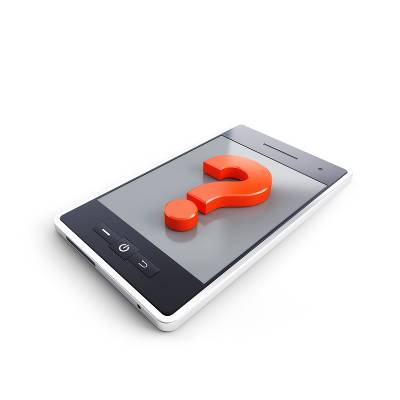Have any question?
Call (409) 861-4450
Call (409) 861-4450
It is a well-known and unfortunate fact that technology does not last forever, and in today’s era of upgrades, no time has this been more true than in the modern day. Therefore, it makes sense for businesses to have a plan in place for when it does come time to replace older devices. This, of course, involves the proper disposal of connected devices, a practice that could very easily be done in a way that is both destructive to the environment and devastating for data privacy if done improperly. We’re here to make sure this doesn’t happen.
The average person checks their phone 58 times a day. With so much use, many users want to know that they have a powerful smartphone that will give them the best chance of having the proper tool when they need it. The flagship smartphones—being the best devices each manufacturer releases each year—typically give users all the bells and whistles they need to be successful. Let’s take a look at some of the top smartphones available right now.
If there’s one trend that is going to continue having an impact on a business’ technology, it’s mobility. People are simply doing more while mobile, having the technology to shop, manage their finances, and yes, work productively. Let’s pause and consider how a small business could leverage this mobility to its benefit.
Business is more mobile now than it has ever been. For the most part, this uptick in mobility has helped sustain some business at a time when many would be expected to fail, but mobility isn’t all good. This month we thought we would take a long look at mobility and how it can be a problem for modern businesses.
Considering how much as we rely on our mobile devices each day, it comes as no surprise how stressful the “LOW BATTERY” notification can be. While you might assume that it only seems to appear earlier and earlier in the day, there are in fact a variety of conditions that cause your device to die much faster. That’s why we wanted to share a few tips to help you understand what is happening to your battery, and what you can do to manage its longevity a little better.
With the smartphone market losing ground for the first time in its short history, many of the manufacturers you’ve come to know are either non-factors in the current market, or don’t even produce smartphones anymore. With new demand growing every year, new manufacturers such as OnePlus and Xiaomi are primed to fall in line behind Samsung and Apple.
 Microsoft and Apple have been at the forefront of personal computing since the 1970s. The competition has caused partnerships and strain between the two companies and in the interim, created hardware and software that would change the world. Although the two companies will be forever linked, they both are betting on mobile, and for good reason.
Microsoft and Apple have been at the forefront of personal computing since the 1970s. The competition has caused partnerships and strain between the two companies and in the interim, created hardware and software that would change the world. Although the two companies will be forever linked, they both are betting on mobile, and for good reason.
 Concocting a comprehensive and concise marketing strategy is extremely important for any small business. Across the board, the average company uses between 8%-to-15% of their gross revenue to reinvest into marketing themselves. When you consider how large of a percentage of an organization's workable capital that really is, you'll begin to understand why companies are trying to find a solutions to cut their marketing costs. They need not look any further than the palm of their hand to find that very solution.
Concocting a comprehensive and concise marketing strategy is extremely important for any small business. Across the board, the average company uses between 8%-to-15% of their gross revenue to reinvest into marketing themselves. When you consider how large of a percentage of an organization's workable capital that really is, you'll begin to understand why companies are trying to find a solutions to cut their marketing costs. They need not look any further than the palm of their hand to find that very solution.
There’s no getting around it: technology has spoiled us. We have had access to 4G mobile data speeds since 2009, and we’re already clamoring for the next thing. While 5G has been in development for some time now, it will likely be quite a while before it is available for common use. Here, we examine why 5G is likely going to take at least a few more years to arrive.
There is no understating the importance of strong, reliable passwords to your organization’s network security, especially to protect its wireless connection. However, this can create some friction with your staff when they try to connect to Wi-Fi using their mobile device. To make accessing the Internet easier, scannable QR codes can be used to connect to the Internet.
Mobile devices are so common nowadays that you’ll likely encounter your employees bringing multiple devices to the office on a regular basis. Little do they know that everything they bring with them, from their Fitbit to their laptop, poses a security threat. Of course, the threat level from each individual device will depend on what it is exactly, but the point stands that the less you do about mobile device security now, the more danger your organization will be in down the road.
Today, perhaps now more than ever before, technology is making strides toward making its users consider ways to stay healthier. Wearables are one of the primary examples of how technology is aiming to make users both more active and more interested about their own health. At 2018’s Consumer Electronics Show in Las Vegas, Nevada, this technology was front and center, showcasing how far it has come in just a year’s time.
Considering how often smartphones are replaced, you’re bound to have a couple of them stashed away for a rainy day. These devices are particularly helpful in the event that your smartphone breaks unexpectedly, but there are other purposes that you might want to keep in mind. Here are three ways you might be able to use your old mobile devices around the office.
Chances are, you’ve heard of phishing before--emails that promise some benefit or prize if you only click on the included link, that actually only results in trouble for you and your data. Unfortunately, as technology has embraced mobility, so have phishing attempts. This is why you must also be aware of SMiShing scams.
You might take extreme measures to keep your business’s devices from contracting the odd virus or malware, but what if all of your efforts are for nothing? You could have the greatest preventative solutions out there, but you can still get infected by some nasty threats, the reason being that the device was infected before you even started using it. You might be surprised by how often this happens, even to wary business owners.
Now that mobile devices have taken over the workplace, you need to consider the security of your business’s data more than ever before. You need to think about which devices access certain data, as well as what they do with that data. In particular, you need to make sure that only your employees can access corporate information, and there are several ways to do so.
Many websites and services now have apps that they use to further distribute their solutions via smartphone. However, when it comes to your business’s sensitive information, which is more secure: the mobile app, or the web-based client? Researchers from Northeastern University performed a study that asked this question, and the results might shock you.
For most things in life, two is better than one--except when it comes to smartphones. Anyone who’s ever tried juggling a work-issued phone and a personal device understands how real this struggle can be. Are you experiencing this multi-phone dilemma? Here are some tips to help you successfully merge your two phones.
Bring Your Own Device, or BYOD, has become an accepted practice in the workplace, but only when it’s implemented properly. The fact remains that allowing workers to use their personal devices for work purposes has its benefits and disadvantages, and that you should only allow them to do so after they adhere to your company’s BYOD policy. Of course, this assumes that you actually have a policy, so let’s talk about how to set up a quality BYOD policy.
You likely use several wireless devices and enjoy their many advantages, like not having to be wired to your desk. Yet, it’s unlikely that you’ve transitioned your entire office to wireless technology. Thanks to the advancements and affordability of wireless technology, having an office that’s completely wireless may be entirely within the realm of possibility.
Get the Knowledge You Need to Make IT Decisions
Technology is constantly evolving, and keeping up can feel overwhelming. Whether you want to understand cybersecurity threats, explore automation, or learn how regulations like PCI DSS impact your business, we’ve made it easy to access clear, straightforward insights on key IT topics.
Learn more about what NetWorthy Systems can do for your business.
NetWorthy Systems
701 W. Division Ave Suite 100
Orange, Texas 77630